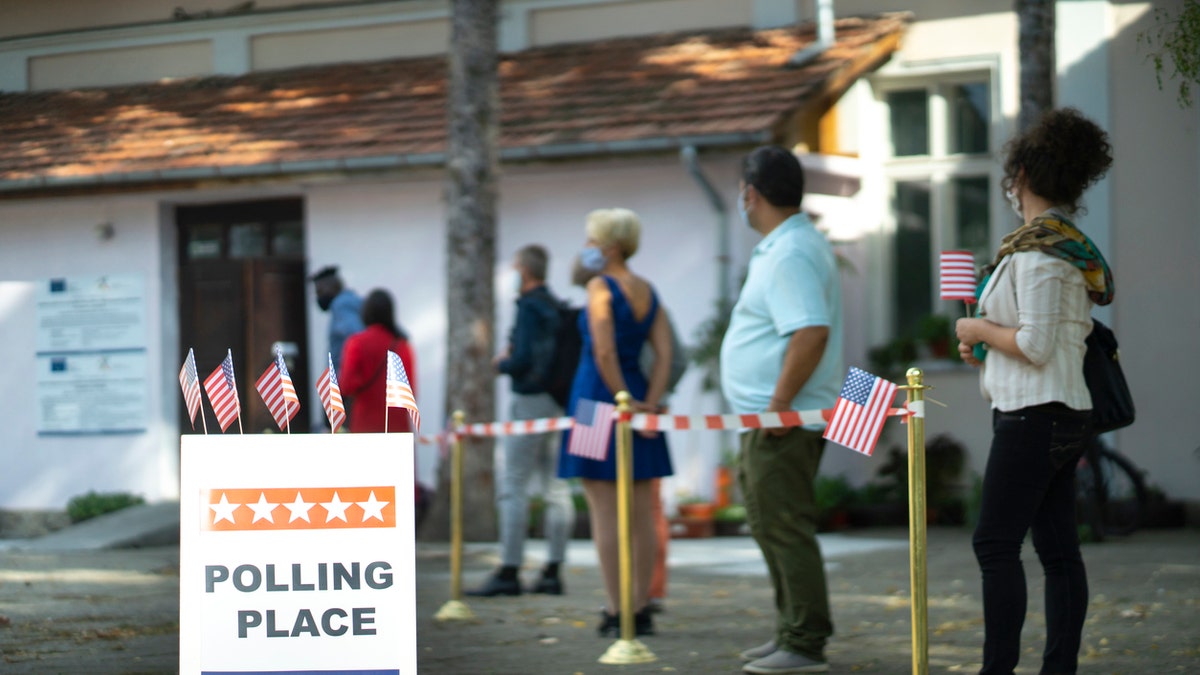While it may be impossible to pinpoint a coronavirus infection down to the time and place that it happened, health experts have advised next steps to take after suspected exposure.
In the days leading up to Tuesday's election and even at the polls, officials urged American voters to wear masks properly over the nose and mouth, social distance and practice hand hygiene to lower the risk of virus spread. However, a recent CDC report from the Delaware primary revealed that only 54% of poll workers said voters wore masks correctly over the nose and mouth.
Not to mention, the agency gave the green light to quarantined, coronavirus-ill people to vote in-person: “Voters have the right to vote, regardless of whether they are sick or in quarantine,” the agency posted on its webpage, which was updated as of Nov. 1.
Whether you believe you were exposed to coronavirus while voting in-person or elsewhere, the CDC has rolled out, and continues to refine, related guidance.

It may be impossible to pinpoint a coronavirus infection down to the time and place that it happened. (iStock)
The virus causing COVID-19 disease is likely most contagious before symptoms begin to show, per multiple studies. If symptoms do show, they tend to crop up days after initial exposure. The CDC has recommended isolating immediately upon developing coronavirus-like symptoms, testing positive, or testing due to high-risk exposure, whichever happens first.
RAPID CORONAVIRUS ANTIGEN TESTS MAY GIVE FALSE POSITIVES, FDA WARNS
Dr. Alan Taege, infectious disease specialist at Cleveland Clinic, explains that infection from virus-laden particles is more likely to happen in enclosed spaces where people aren’t wearing masks.
“If you come into close, significant contact with someone who has COVID-19, you should self-quarantine for 14 days,” Taege said. “This involves staying home and limiting interaction with others. This is especially true even if you don’t get sick because we now know that people can still have the virus and spread it to others if they aren’t showing symptoms.”

Health experts advise isolating at home after close contact with an infected individual, or while test results are pending. (iStock)
The CDC revised its definition of "close contact" last month to include multiple, brief exposures adding up to over 15 minutes within 24 hours. Dr. Annabelle De St. Maurice, co-chief infection prevention officer at UCLA Health and assistant professor of pediatrics, noted that the CDC recommends a 20-day isolation period for those with severe symptoms or for people who are immunocompromised.
CLICK HERE FOR FULL CORONAVIRUS COVERAGE
Coronavirus has shown to manifest differently, with some showing no symptoms while older adults and those with underlying health conditions are at heightened risk of more serious outcomes like hospitalization and death. These outcomes are rare among younger people, though complications do happen.
NEWLY CONFIRMED CORONAVIRUS CASES AMONG US CHILDREN SURGE
Some coronavirus symptoms may require emergency medical care, and in that case, patients should seek medical attention immediately. The agency has also advised those in the same household as a coronavirus-infected patient to use separate bathrooms and bedrooms, and wear masks in shared spaces, if possible to limit virus transmission at home.
Dr. David Thomas, chief of the division of infectious diseases and professor at Johns Hopkins University, explained that someone usually knows they were infected about five to seven days after initial exposure, adding, “even then it would be very unusual to ‘know’ you were infected at the polls.”
CLICK HERE FOR THE FOX NEWS APP
Fox News' Alexandria Hein contributed to this report.









































